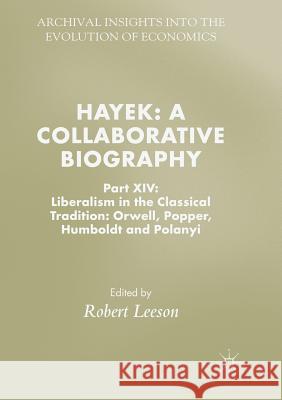Hayek: A Collaborative Biography: Part XIV: Liberalism in the Classical Tradition: Orwell, Popper, Humboldt and Polanyi » książka
topmenu
Hayek: A Collaborative Biography: Part XIV: Liberalism in the Classical Tradition: Orwell, Popper, Humboldt and Polanyi
ISBN-13: 9783030068479 / Angielski / Miękka / 2018 / 396 str.
Hayek: A Collaborative Biography: Part XIV: Liberalism in the Classical Tradition: Orwell, Popper, Humboldt and Polanyi
ISBN-13: 9783030068479 / Angielski / Miękka / 2018 / 396 str.
cena 362,27
(netto: 345,02 VAT: 5%)
Najniższa cena z 30 dni: 346,96
(netto: 345,02 VAT: 5%)
Najniższa cena z 30 dni: 346,96
Termin realizacji zamówienia:
ok. 22 dni roboczych
Bez gwarancji dostawy przed świętami
ok. 22 dni roboczych
Bez gwarancji dostawy przed świętami
Darmowa dostawa!
Kategorie:
Kategorie BISAC:
Wydawca:
Palgrave MacMillan
Seria wydawnicza:
Język:
Angielski
ISBN-13:
9783030068479
Rok wydania:
2018
Dostępne języki:
Numer serii:
000369490
Ilość stron:
396
Waga:
0.48 kg
Wymiary:
21.01 x 14.81 x 2.13
Oprawa:
Miękka
Dodatkowe informacje:
Wydanie ilustrowane











